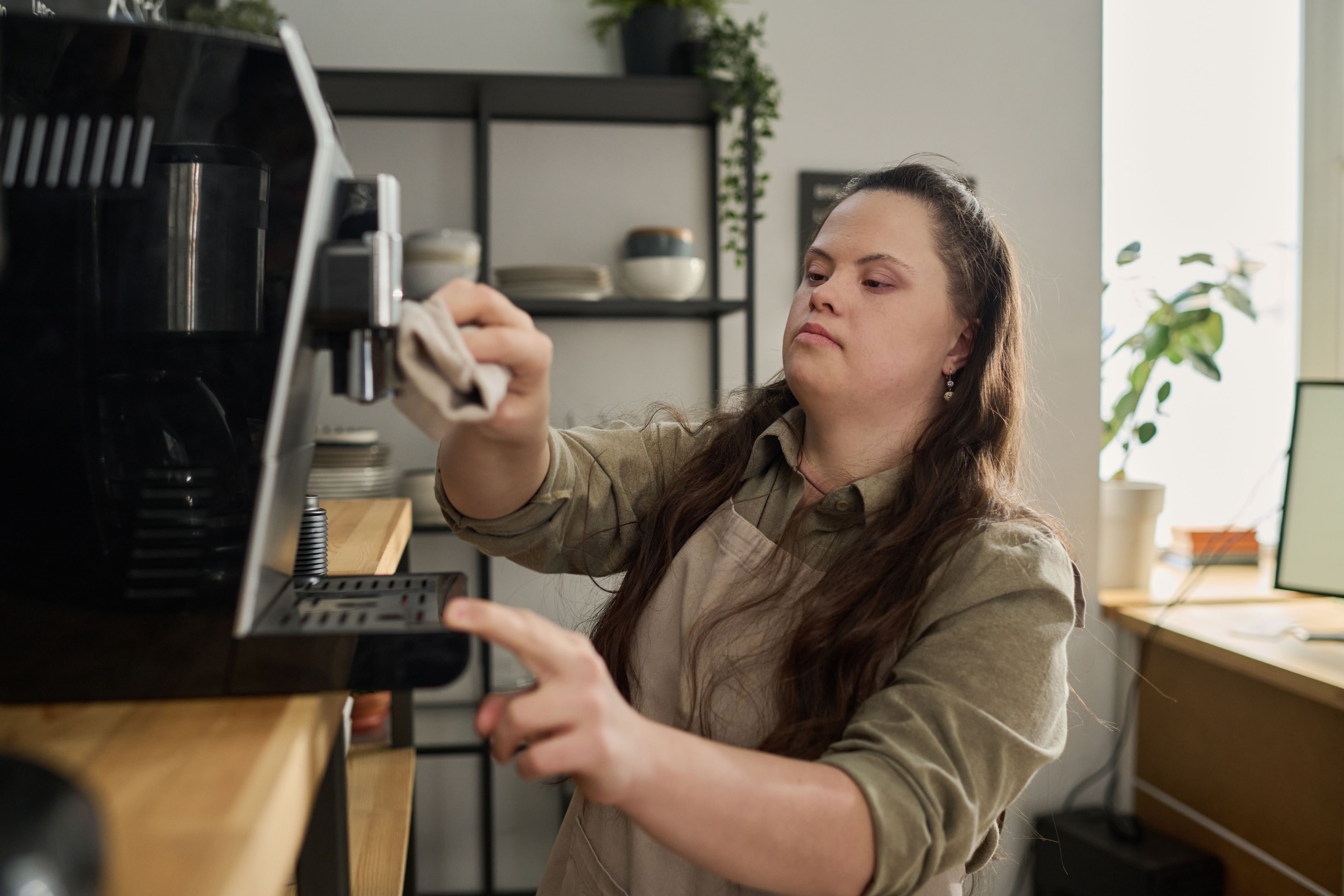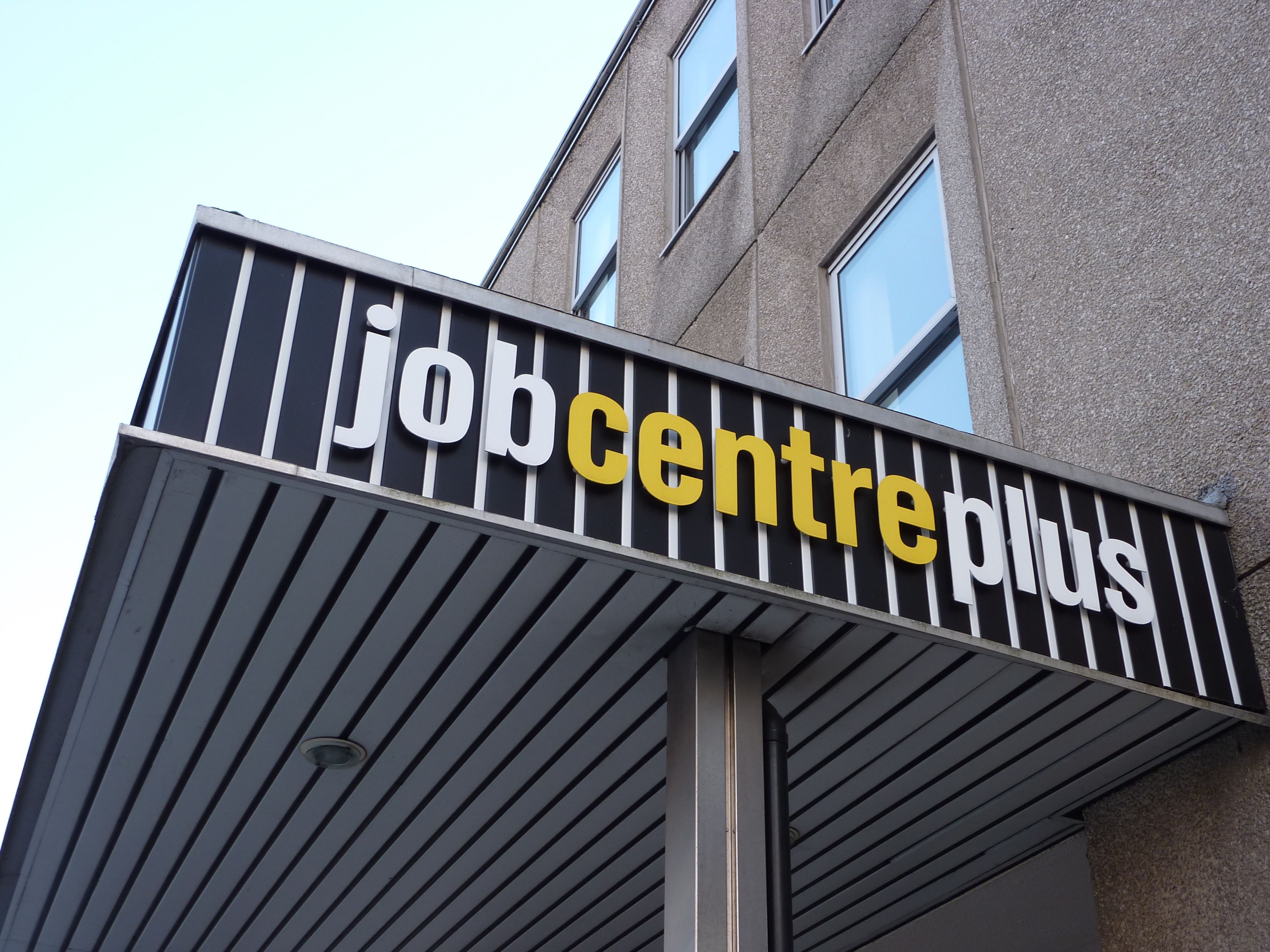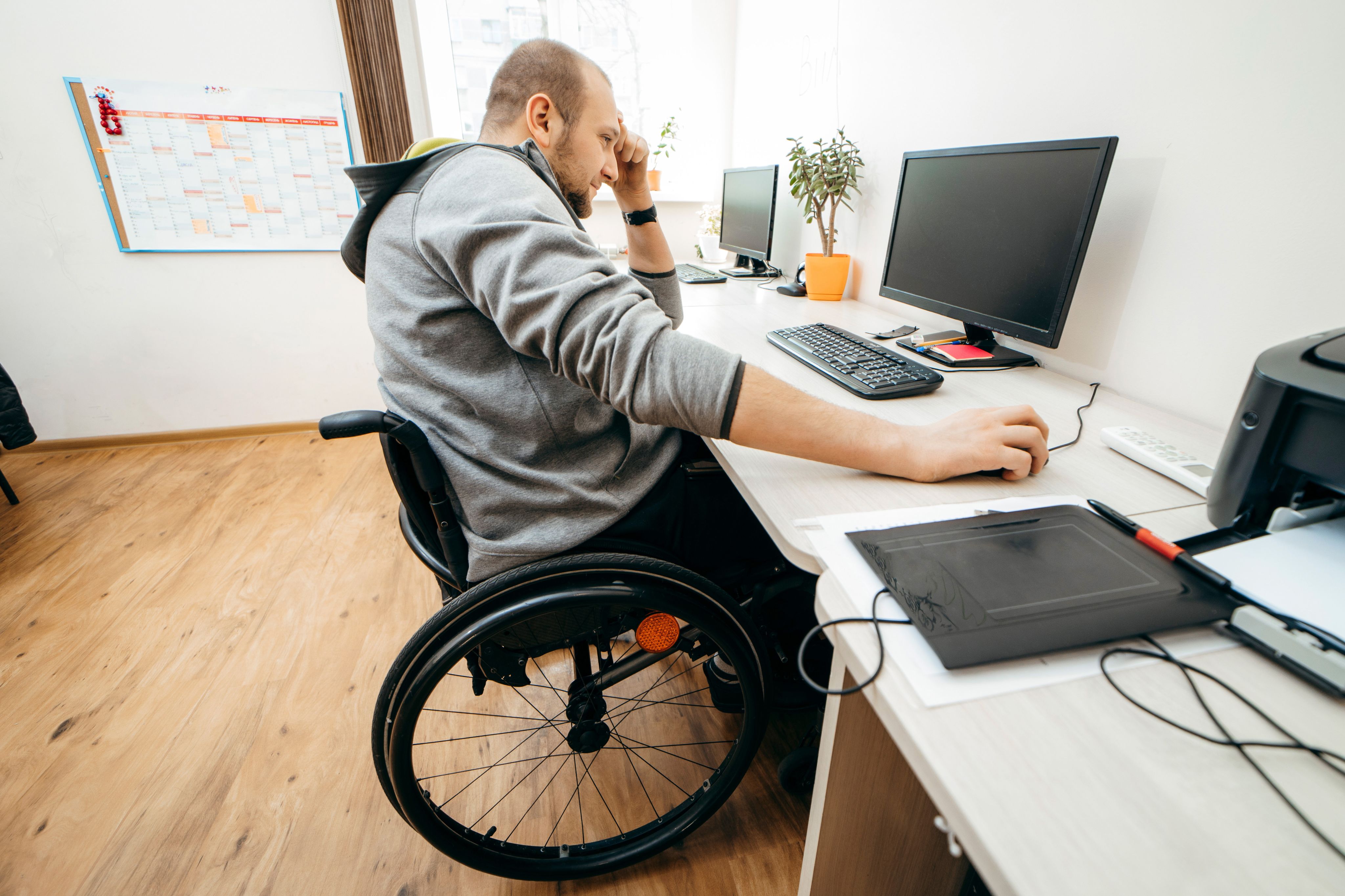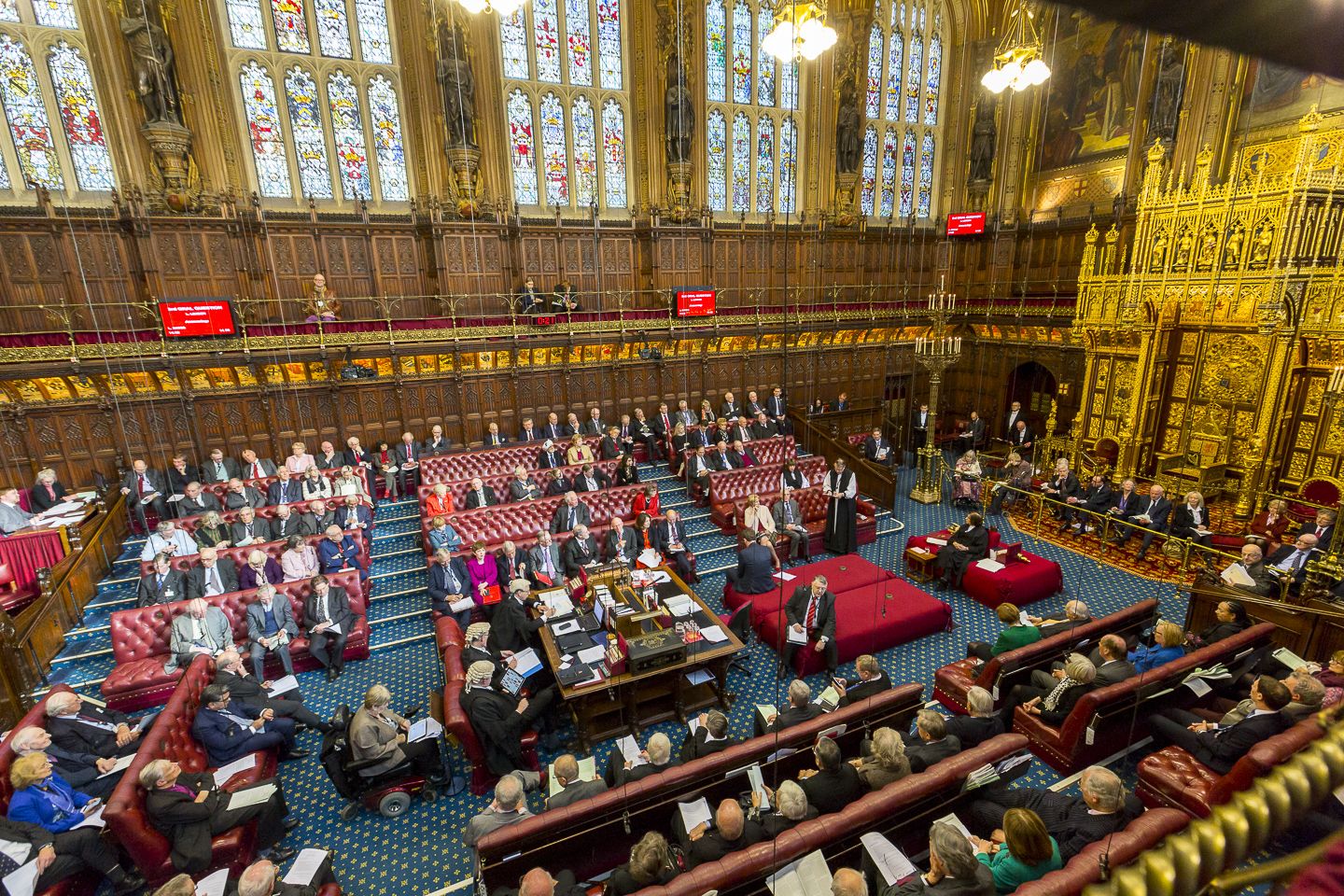The disability employment gap has remained stubbornly at around 30% for the last decade
How do we support young disabled people to get jobs and thrive in work?

Young disabled people want the same things as all other young people: to get good jobs once they leave education, and to thrive in their careers.
However, our new report has concluded that young disabled people face challenges at every stage of the transition from education to work – from low expectations at nursery and school, employment support services that aren’t delivering, and barriers and discrimination in the workplace.
This means that young disabled people are less likely to get into work and have meaningful careers, both when they leave formal education and throughout their lives.
Young disabled people have poorer education and work outcomes than non-disabled people.
During our inquiry, we heard about many of these challenges, but we also heard of ways in which young disabled people were successfully being supported to access and thrive in work.
We set out to investigate how big this problem is, why it is happening, and how we can address it.
Here are three main challenges



1. Support in education
Far too often, young disabled people don’t get the right support in the education system, with many facing discrimination and low expectations from teachers and careers advisers.
“A careers officer told me that I should go to Tech because university wasn't for, and this is a quote, 'for people like me'. I was fuming!! It's just sort of fuelled me to go and prove them wrong!”
We heard that these low aspirations can begin as early as nursery.
“They were having conversations with these little people, aged three or four, about what they want to be when they grow up. There was a boy in the room who said he wanted to be a bus (sic), and nobody questioned that, which is fine, but they skipped over the little girl with Down’s syndrome. They did not ask her.”
But we also heard of services that are offering the right support, delivered by specialists who could work with the young disabled person to account for their needs.
Tailored, specialist advice, accessible apprenticeships and work experience, and supported internships, all provide effective support.
We visited Whipps Cross Hospital, where we heard from NHS leaders and young disabled people about how their supported internship programme was enabling young disabled people to be valued members of the NHS workforce.
However, these services are not always available or accessible for young disabled people.
The Government should increase the number of targeted programmes like supported internships and accessible apprenticeships, and should take steps to improve access to specialist careers advice and education for young disabled people.
2. Employment support outside of education
When people leave education and don’t move straight into a job, there are services that are supposed to help them apply for jobs and get into work, such as Jobcentre Plus.
But we heard that this support is often “generic” and doesn’t consider the specific barriers that a young disabled person may face. In addition, disabled people aren’t guaranteed the adjustments they need to make jobcentres accessible for them.
“One in three 18-25 year olds with complex disabilities did not feel supported by Work Coaches.”
The Government should affirm its support for rolling out more Individual Placement and Support and Universal Support services, take steps to improve the specialist support people can get through Jobcentre Plus, and take action to cut Access to Work waiting times.
3. Discrimination in the workplace
Under the Equality Act 2010, employers are not allowed to discriminate against people on the grounds of disability, from when someone is applying for a job, to when they’re in work, and beyond.
Despite this, young disabled people may face discrimination linked to their disability when they apply for jobs, or when they are in work. And in any case, many young disabled people and employers don’t even know what the rights of disabled people in the workplace are.
“Young disabled workers face disadvantages and discrimination at all stages of their employment journey.”
Young disabled people told us that they had experienced discrimination when applying for jobs:
A young disabled person who used a wheelchair told us she never disclosed her disability ahead of job interviews because it was the only way she could “get a chance” to get the job, and another shared that an employer told them “we don’t employ neurodivergent people.”
Even when a disabled person gets into work, it can be difficult for them to uphold these rights, and they may instead fall out of work.
Under the Act, disabled people also have the right to reasonable adjustments in the workplace – adjustments which can support the person to do their job. Currently there is no deadline for employers to respond to requests for adjustments, and some employers may refuse adjustments people need.
One person we spoke to, who has a visual impairment, shared that their employer refused to put adjustments in place or allow her to use a cane due to health and safety concerns, which ultimately meant she quit her job.
We also heard that employers may be unsure about how to support a disabled person in the workplace or fear saying or doing the wrong thing.
They may instead simply choose not to employ disabled people at all.
“One in five employers told stated that they would be less likely to hire a disabled person.”
The Government should more effectively enforce and communicate the workplace rights of disabled people, and improve support for employers to create inclusive workplaces.
We need a way forward
We heard that often young disabled people can’t access the right support, but when they can it makes all the difference.
The Government needs to expand those services which are providing tailored, personalised support for young disabled people to get into work, both in the education system and beyond it.
These services need to be built through listening to individual disabled people about their aspirations and needs.
“The Government needs to listen to people like me. Just because I do not speak does not mean I cannot make a contribution to society.”
While work may not be the right outcome for everyone, throughout our inquiry we heard that many young disabled people want to work but are faced with low aspirations and negative assumptions about what they can do at every stage.
Instead, we need to support young disabled people to achieve their goals, and presume they will be able to access and succeed in work.
What happens next?

We have made our recommendations to the Government and it has two months to respond to our report.
Read the full report on our website along with an easy read version.
Watch a British Sign Language version and audio version of the summary, conclusions and recommendations of the report.
Find out more about our inquiry and our committee.
Follow us on LinkedIn and X (formerly Twitter).
Cover image credit: pressmaster (stock.adobe.com)